
Bacteria and Fungi Everywhere
Okay, so, imagine this: you’re coming home from a day out. Your hands run over doorknobs, gym equipment, your phone … That’s a lot of opportunity for bacteria and fungi to make themselves at home on your skin. Some days, it feels like everything is trying to mess with your skin health. And those tiny issues—little cuts, the itch on your foot you pretend you don’t notice? Ignore them, and suddenly, you’re dealing with angry red patches or a weird rash that just won’t quit.
People have been using “natural” fixes forever. But I’ve gotta ask—have you ever considered that bottle of castor oil lurking in the back of your cabinet? Yeah, the one you mostly associate with, well, bathroom emergencies. Turns out, “Is castor oil antifungal and antibacterial” isn’t just a random search—it’s a real question with pretty surprising answers.
Nature’s Secret Weapon?
Let’s get right to it: Is castor oil antifungal and antibacterial by nature? Drumroll…yes, it is! At least, that’s what a surprisingly decent pile of studies, plus a whole lot of stories from folks like us, suggests.
The real superstar in castor oil is ricinoleic acid. This fatty acid makes up almost 90% of the oil. And ricinoleic acid is where most of the germ-fighting magic comes from. When applied to your skin, it can mess with the protective layer of certain bacteria and fungi, which basically tells them: “Not today, friends.”
But don’t get too excited about turning into Dr. Chemist overnight—there’s still a bit of a science mystery here. Some people see castor oil as a miracle for infections…others aren’t totally convinced by the research just yet according to health resources like WebMD. Still, it’s getting a lot of positive buzz…let’s keep digging!
Real Life, Real Results
Ever had one of those small skin issues you think will just “go away,” only to look down a week later and see a bright red patch or a scratch that grew angry? My cousin used to get these weird little fungal spots on her feet every summer. One day, she tried rubbing on a bit of castor oil—mainly because her grandmother swore by it. By week two, her skin basically looked new. No stinging, no chemicals, just a little sticky and, honestly, you get used to that.
Her trick was just dabbing on a thin layer at bedtime—easy. You might need a pair of old socks you don’t care about, though, because this stuff can stain. (Lesson learned … sorry, favorite pillowcase.)
How Does Castor Oil Compare?
| Oil | Main Benefit | Drawbacks |
|---|---|---|
| Castor Oil | Antibacterial, antifungal, anti-inflammatory | Thick, sticky, can be messy |
| Tea Tree Oil | Super strong antifungal & antibacterial | Can be harsh, stings sensitive skin |
| Coconut Oil | Gentle on skin, mild antifungal | Less powerful; slower results |
The Science (But Make It Chill)
Here’s what’s wild—the more scientists study plant oils, the more they find new ways these “old school” fixes do the job. And, yeah, castor oil has shown up in some cool places. Animal science folks found that a blend of castor oil and cashew nut-shell oil fought bacteria on par with some antibiotics … without wiping out all the “good” bacteria in the gut like modern meds often do. Talk about being selective! (Check out the functional oils research that helped chickens fight off infections without antibiotics!)
When it comes to fungi—like those that cause athlete’s foot, ringworm, or other comfy skin party guests—ricinoleic acid again stands out. This stuff basically disrupts the fungus’s “security system,” making it easier for your skin’s natural defenses to win according to StatPearls in the NCBI Bookshelf.
But Wait, How Does It Work…Exactly?
Okay, so… is castor oil antifungal and antibacterial by design?
- Antibacterial: It can weaken cell walls in bacteria—think of breaking the enemy’s armor. This helps wounds heal faster and keeps pimples from morphing into monsters.
- Antifungal: It blocks how fungi grow and multiply—slows them down before they can really take over. For everyday issues, like “mystery itches” or even mild athlete’s foot, that’s game-changing.
Side note: While it does all this, it keeps your skin’s natural good bugs basically happy and undisturbed. That’s something that harsh antifungal creams or strong antibiotics definitely do not do.
Everyday Uses (Don’t Overthink It)
No gatekeeping here. Want to try castor oil at home? You totally can. Here are a few of my “real person” tips that don’t require a complicated science degree or a 10-step plan:
For Skin Itches and Minor Cuts
Dab a drop of castor oil on clean skin. If you want, mix with a lighter oil (like coconut) so it spreads more easily. Bandage over deeper cuts…or let it air out for surface-level scrapes (but try not to touch your clothes right away; it stains!).
Pimples and Acne Drama
Ever get that angry red bump right before a big event? After washing, dot on a smidge of castor oil overnight. It helps calm inflammation and keeps bacteria in check. You probably won’t wake up looking airbrushed…but your skin might be less angry, and that’s a win.
Tired, Itchy Feet? Or “Ringworm Fears”?
Wash and dry feet, then rub in a thin layer nightly. Works well for fungal stuff and for that slippery, winter-dry feeling. If you want to get fancy, you can check out the Benefits of rubbing castor oil on stomach. Yes, some folks actually use it for stomach wellness rituals, and while I haven’t massaged my belly with castor oil (yet), people swear it helps with digestive balance and soothing cramps, too.
Eating (Or Drinking) Castor Oil? Hmmm…
Now, I know…the idea of “Drinking castor oil benefits” might make you cringe a little (or a lot), especially if you remember your grandma’s war stories about it. But, the internal benefits aren’t just old wives’ tales. Castor oil is a classic “cleanse your gut” remedy. It kicks your colon into gear. In animal and lab studies, castor oil (usually in blends, to tame the wild bathroom effects) helped restore healthy bacterial balance and prevent infections based on published studies on castor oil blends in animal digestive health. That said, it is potent—talk to a doctor first before swallowing any. Digestive drama is no joke.
I had a neighbor who, no joke, swore by a teaspoon of castor oil for her bloated days. She’d grin and say, “Just don’t plan to go anywhere for an hour or two.” Gutsy, right? But the stories are out there…and the drinking castor oil benefits do pop up among gut health folks who prefer plants over pills.
Is It Safe? (Mostly)
Here’s where it gets real. Natural doesn’t mean foolproof. A few pointers if you’re tempted to add castor oil to your medicine shelf:
- Patch Test: Always. I learned the hard way (heat rash + oil = not cute). Try a dab on your wrist first.
- Pure Is Better: Organic, cold-pressed oil has the highest ricinoleic acid. Additives? Nope. Trust me—you want the real thing.
- Not For Open Wounds: If it’s bleeding or infected, see a doctor. Castor oil supports, but isn’t the full medical squad.
- Swallow Sparingly: If tempted by “drinking castor oil benefits,” remember—tiny amounts, not daily, and, for the love of all things, check with your doctor.
Bonus—castor oil isn’t harsh like some of those “super strong” natural oils (hello, tea tree). It’s thick, it’s sticky, it’s a little weird, sure…but it won’t usually leave your skin red and burning the way tea tree sometimes will.
Comparisons In The Real World
| Remedy | Antibacterial | Antifungal | Sensitivity |
|---|---|---|---|
| Castor Oil | Strong | Good | Low |
| Tea Tree Oil | Very Strong | Excellent | High (may sting) |
| Coconut Oil | Mild | Mild | Very Low |
Gut and Skin—More Connected Than You Think
You know that old saying, “beauty starts within”? Turns out, it’s not total nonsense. The balance of bacteria and fungi in your gut can show up in your skin—acne, rashes, all that drama. When castor oil keeps bad bugs and fungus in check in your digestive system, it might also be helping your skin from the inside out. Smart, right?
Don’t just take my word for it—explore the broader drinking castor oil benefits and tell me if you try a gut “reset”—results seem mixed, but people swear their skin clears up, too.
Your Weekly Castor Oil Ritual?
So if you’re sitting on the fence (or hoarding that castor oil bottle for “emergencies”), here’s an easy ritual to try:
- Patch test your skin.
- For a week, dab a drop on problem skin at bedtime. Or try rubbing a little on your stomach before a bath (who knows, right? The benefits of rubbing castor oil on stomach could surprise you!).
- Track your results. Fewer pimples? Itch calm down? Glossier skin? Or just a moment of old-school self-care?
Maybe you’ll find yourself rooting for this “yesterday’s home remedy” after all.
Let’s Wrap It Up
So…is castor oil antifungal and antibacterial? In short: Yes—with a little nuance. It won’t replace your doctor, but for loads of minor insults (cuts, scrapes, rashes, breakouts), it offers gentle, natural defense—plus soothing moisture as a bonus. Ricinoleic acid does the heavy lifting, disrupting nasty microbes without nuking your skin’s good guys.
Spend a week with castor oil and see how it feels—maybe just a dab for a stubborn pimple or to calm down an itchy spot. If you’re the curious type, look into the benefits of rubbing castor oil on stomach or even try to discover those drinking castor oil benefits. Could this “messy” old oil become your new health sidekick? Only one way to find out! Take that leap, trust your skin (and your gut, literally), and don’t wait until that “small issue” becomes tomorrow’s big headache. Your future self might just thank you.

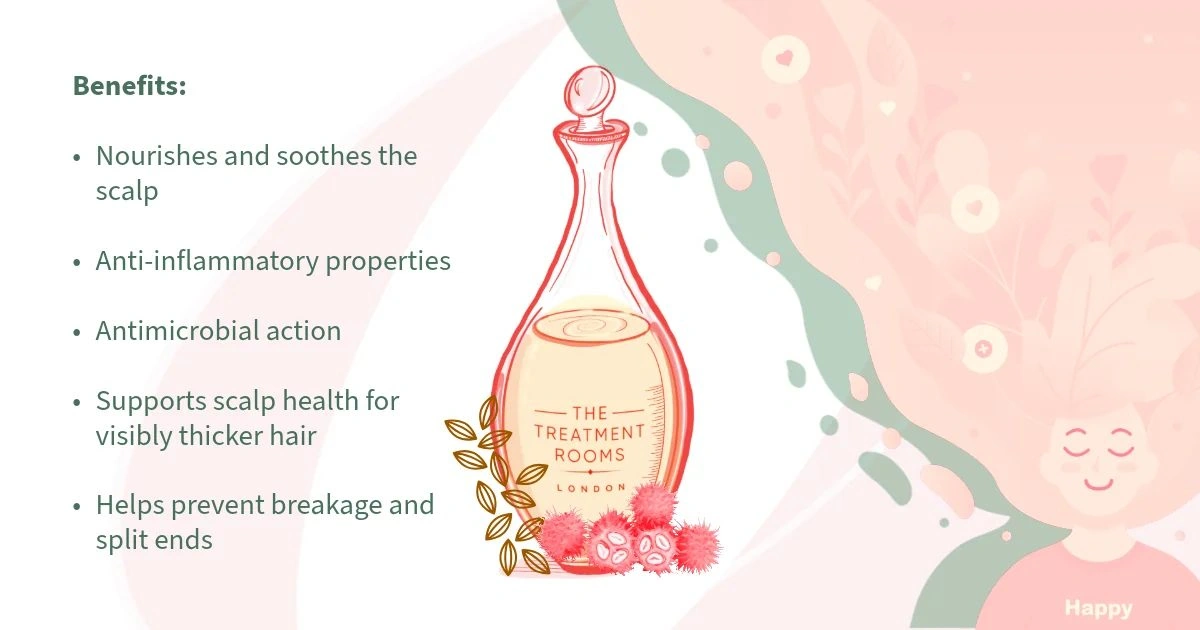
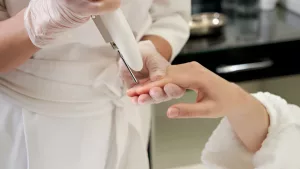
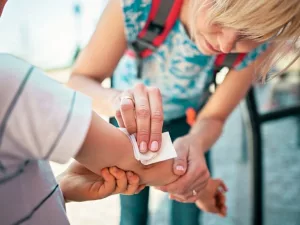


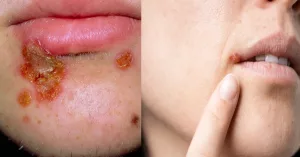
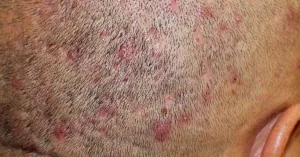

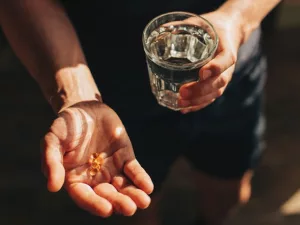




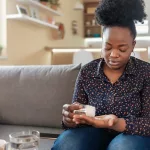
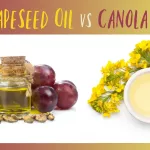






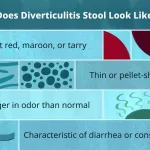

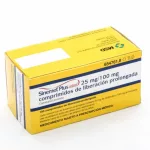
Leave a Reply
You must be logged in to post a comment.